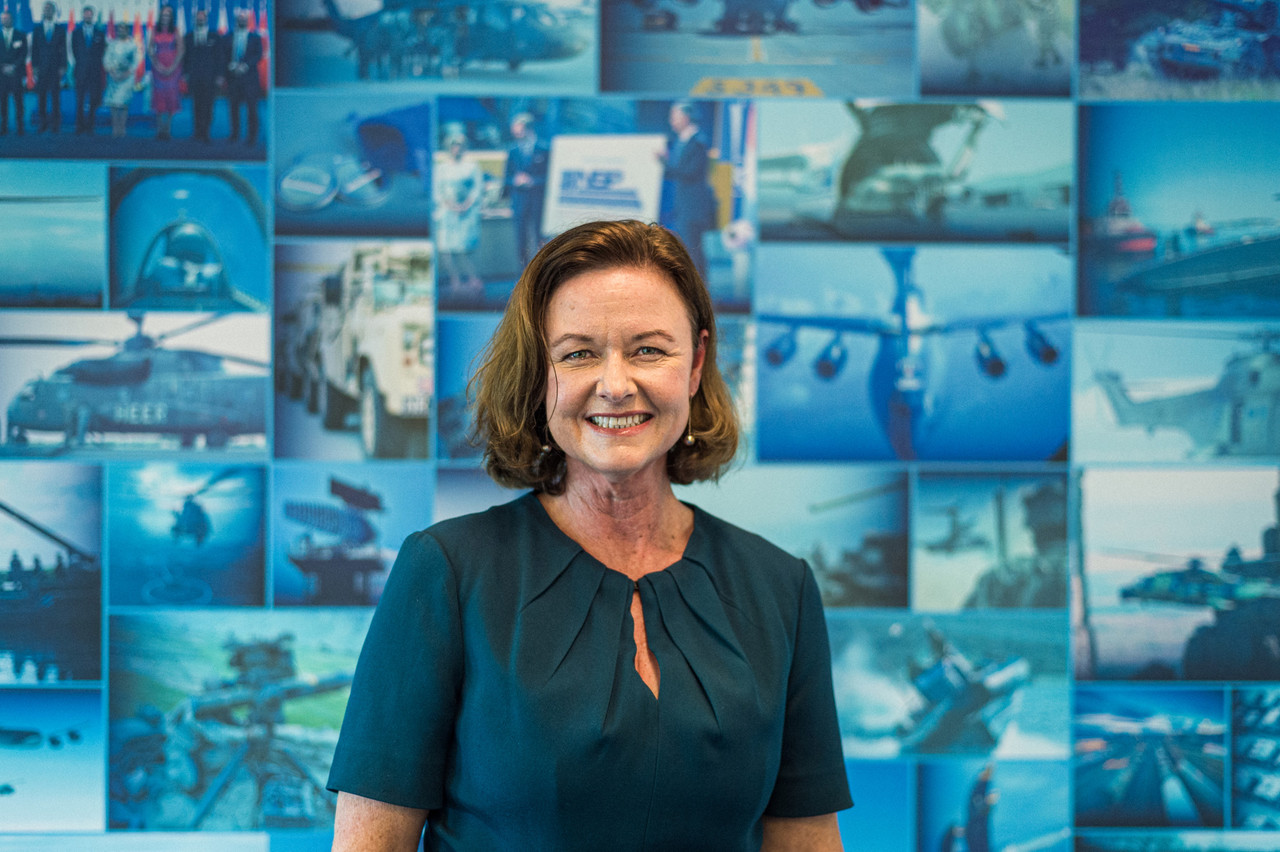Cordula Schnuer: You made the move to the NSPA from the US department of defence. How has your career so far prepared you for this position?
Stacy A. Cummings: In my last position, I was performing the duties of the undersecretary of defence for acquisition and sustainment, which is an all-encompassing breadth of acquisition and logistics, and environmental activities, which matches up perfectly with the mission of the NSPA.
To fulfil this mission, the NSPA is scheduled to undergo a €200m refurbishment, co-funded by Luxembourg. Why is this necessary?
We have been here in Luxembourg for over 50 years. The buildings are the same buildings that we moved into over 50 years ago. The other thing is that we’ve changed a lot--the environment and the way we work, but also our size. We’ve expanded fivefold in the last decade. We really needed to be able to operate and partner in a different way. That’s why it was so important that we put together this multiphase, multiyear upgrade to our infrastructure.
It’s not part of the refurbishment, but you are also working with Luxembourg on building a cyber range, a virtual training environment for cybersecurity. You spoke about how the agency has changed over 50 years. How have the threats it faces also changed?
In the last year, Nato has formally endorsed cybersecurity as being a threat. But this is not just a Nato issue. Cybersecurity is critical for individuals, for businesses, for governments and for international organisations. Cyber threats impact us every day, and both Nato and the NSPA are looking at cyber in a new way, and the need to defend and protect our data.
Another potential threat is climate change. How is this impacting your operations?
We look at climate change from two perspectives. How does climate change impact the operational environments we operate in? And how do our operations impact the environments in which we operate? Nato has formally recognised that climate is an issue it needs to actively participate in from both of those perspectives.
One opportunity is looking at how we help nations to dispose of military-type items that they don’t need anymore. We need to be able to do that in a way that’s environmentally sound. I also see opportunities in innovation and acquisition.
We need to think of how the environment will change over the next 10, 20, 30 years and how we can make sure that we’re considering the environmental impact as we acquire new systems for use with allied nations or with Nato.
Speaking of innovation--the grand duchy’s army is quite small. Where do you see avenues for Luxembourg to increase support for Nato?
There are a lot of ways that Luxembourg already contributes. Cyber is a wonderful opportunity and we’re very pleased to be working with Luxembourg on cyberdefence as well as modern, advanced and secure data centres. Satellite communication is another area in which Luxembourg brings a lot of strength.
But Luxembourg is far from reaching the 2% of GDP defence spending pledge Nato members made in 2014. Is it realistic for the country to ever fulfil that commitment?
I certainly can’t speak on behalf of any member nation, let alone a host nation. I will say that we’re pleased to be here. We’re happy that Luxembourg remains a steadfast partner as our host nation and as a member of Nato, and I look forward to seeing what different areas there are to participate in with Luxembourg as part of a greater partnership.
This interview was first published in the November edition of .
